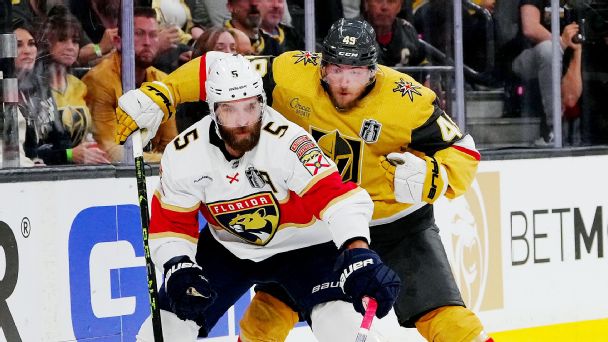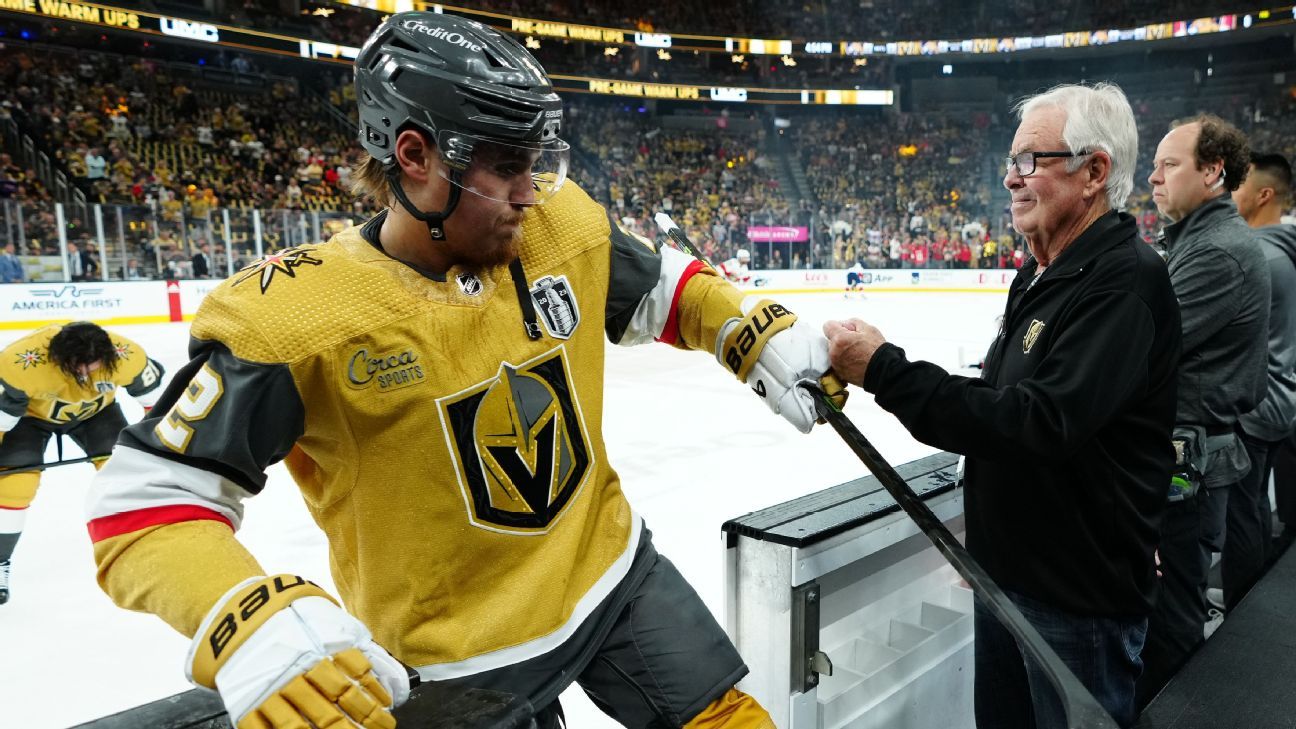
Army hockey coach Brian Riley isn’t sure if the Stanley Cup has ever visited West Point.
“But I like our chances now,” he said with a laugh. “I’m not a betting man, but I’ve got to believe that the Stanley Cup’s going to come to West Point no matter who wins the Final.”
The
The playoffs are here. Get caught up on all the latest news and preview content:
• Schedule, scores, highlights
• Conn Smythe Watch
• Wyshynski’s playoff bracket
• Top 50 players in the playoffs
• Cup Final, Conn Smythe odds
• Subscribe to ESPN+
• Stream the NHL on ESPN
Riley has interacted with Viola many times. Panthers players participated in team-building programs at West Point through the years. In 2016, Florida played the first-ever NHL game at the U.S. Military Academy, facing off against the New Jersey Devils in an exhibition game.
“Mr. Viola surrounded himself with West Point graduates,” Riley said. “You look at how he set up the organization. I would think people would say there are a lot of similarities between the structure you have in the military and in the Panthers organization.”
Viola also nearly became Secretary of the Army under President Donald Trump in 2017 but pulled his candidacy when it became clear that separating himself from “the organizations that he has built over the last 35 years have proven insurmountable,” according to Politico.
“Had he been the Secretary of the Army, he would have been a great one,” Riley said.
Viola’s military background also influenced the look of the team. In 2016, Florida got rid of its “leaping Panther” logo in favor of the one it currently wears, which is modeled after the patch for the Army’s 101st Airborne Division.
“I think the logo harkens to the vanguard of courage, the idea that you put a shield on the hockey uniform,” Viola said at the time. “It’s something to protect, but you also protect it. We wanted something that began a new tradition of winning and demonstrated courage and selfless dedication to a team pursuit of victory.”
THE ENTIRE BRANDING of the Vegas Golden Knights was influenced by the military — which led to some rather awkward moments between Foley and his alma mater.
In 2016, the NHL approved Foley’s bid to bring an expansion team to Las Vegas. He had already decided on the team’s colors: black, gold and gray, the same palette as Army. He said changing those colors was “non-negotiable.” But the team’s name, it turned out, would require some negotiation.
Foley wanted his NHL team to be the Vegas Black Knights, which is also the nickname of Army’s athletic teams. Foley’s financial services firm is Black Knight, Inc. The hockey team’s parent company is Black Knight Sports and Entertainment.
He received some pushback from both the U.S. military and the NHL on that name but still wanted to incorporate “Knights” in the Vegas team’s nickname. Adidas and the NHL preferred an animal mascot that was evocative of the environment around Las Vegas. But Foley trademarked Desert Knights, Silver Knights and Golden Knights — the eventual choice.
One problem: Golden Knights was also the name of Army’s parachute team. The U.S. Army filed a notice of opposition with the U.S. Patent and Trademark Office over the nickname of the Vegas Golden Knights. The dispute was settled in 2018, after the team’s inaugural season saw it lead the NHL in merchandise sales.
The first time Riley met Foley was in 2016. Foley was receiving a Distinguished Graduate Award, given to West Point graduates “whose character, distinguished service, and stature draw wholesome comparison to the qualities for which West Point strives.” There was a reception for him that Riley attended, where he hoped to bump into the man of the hour: One of Foley’s best friends, Rick Anderson, played for Riley’s father, Jack, when the latter coached at West Point.
“I asked somebody, ‘Where’s Mr. Foley?’ And they said he’s the guy over there in the blue jeans. He was just really unassuming,” Riley recalled.
He introduced himself to Foley, and eventually the conversation turned to Vegas hockey. Riley asked him what his expectations for the team were.
“He said, ‘I am going to give everybody everything they possibly need to be successful, and in a year I expect that we’ll be competing for a Stanley Cup,'” Riley said. “I remember wondering if he really understood how hard this is going to be, especially with a new franchise. And lo and behold, there they were, competing for a Stanley Cup.”
Six years later, they’re competing for the Stanley Cup again. Which, famously, was part of Foley’s initial plan for the Knights: Playoffs in three years, Stanley Cup in six.
Viola didn’t make that kind of declaration when he purchased the Panthers. His goal was “to be a team that is completely committed to winning the right way for the community it represents.” His team has lived up that: In the 19 years before Viola purchased the team, the Panthers made the postseason four times; the 2023 playoffs mark the fifth time they’ve made it in 10 years with Viola as owner.
“Mr. Foley and Mr. Viola didn’t get to be where they are by trying to finish second,” Riley said. “They’re winners.”












